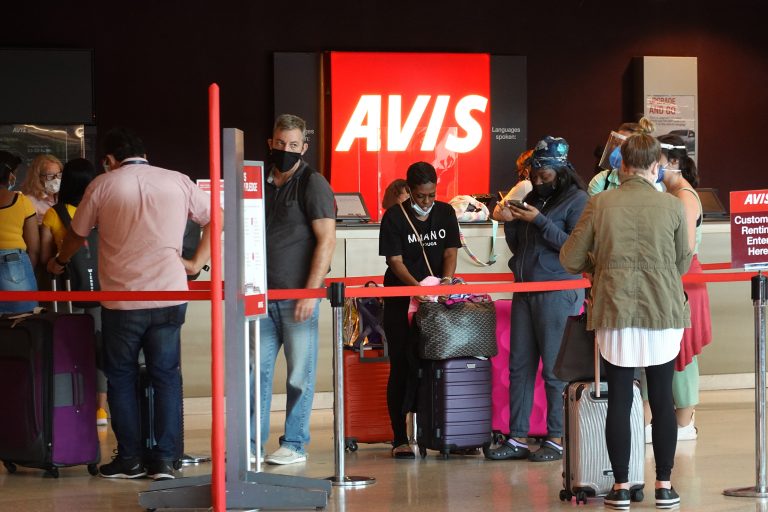Many Americans across the country who planned to rent a car to visit their loved ones during this Thanksgiving holiday would have been shocked by the elevated prices. A shortage of vehicles and supply chain bottlenecks have contributed to a spike in the price of car rentals.
According to estimates from the travel website Kayak, the average cost of rental cars is 75 percent higher this year than in 2019 and 66 percent higher compared to 2020. Car rental searches also increased by 230 percent when compared to 2019.
The American Automobile Association (AAA) estimates that around 53.4 million Americans will have traveled for the Thanksgiving holiday, with approximately 90 percent of those travelers opting to drive.
Jonathan Weinberg, founder and CEO of Autoslash.com, told the New York Post that the average price nationwide to rent a car is around $100 a day. In major cities like New York, customers are shelling out nearly $300 per day. When compared to 2019, the rental prices have gone up by over 50 percent, he revealed.
A report from Finance Buzz predicted the New York City metropolitan area to be the most expensive place to rent a car for the holiday season. The average cost of renting an economy car in New York City is $261.17 per day while the average cost of an SUV is a whopping $392.30 per day.
Success
You are now signed up for our newsletter
Success
Check your email to complete sign up
“Things are pretty crazy at the moment and the reason is because we have a massive shortage of rental cars, there is a semiconductor shortage, basically computer chips are not available and with today’s modern cars, they require over 100 chips in each one,” Weinberg told the Post.
Last year, there was a lot of “apprehension” among people when it came to traveling. As such, rental car companies had sufficient stock to meet the demand at the time. But now, things have gone the other way entirely.
In order to prevent the COVID-19 related travel restrictions from adversely affecting their businesses, many car rental companies sold much of their inventory in 2020 with the intention of buying them back when needed.
However, when the economy came roaring back quicker than expected, the companies faced a crisis as they couldn’t meet the increased demand for travel. The past few months have seen rental car firms bringing in more vehicles, but it is still not enough to cater to the demand.
Avis Budget Group spent about $8 billion on new cars this year. Its fleet consisted of nearly 434,400 vehicles during the three-month period ending Sep. 30, an increase of 20 percent from the same time last year. Car rental service Hertz faced a 34 percent shortage in its fleet during the three months that ended on Sept. 30. CFO Kenny Cheung said that despite adding more vehicles, the company was still struggling to replenish and rotate the fleet.
Exacerbating the issue is the global semiconductor shortage. Powering everything from window motors to navigation systems, all modern cars come equipped with microchips. According to Ivan Drury, senior manager of insight at Edmunds, the automobile industry has been in a state of confusion ever since the COVID-19 pandemic. When the economy rebounded, they were unable to obtain the necessary parts, he explained.
“Right now new car dealers only have about 20 percent of the inventory that they are accustomed to having during a normal year so we’ve even seen that rental agencies [who] want to buy x amount of units, they can’t even get those delivered to them, some rental car agencies are even resorting to used cars,” Drury said.
















